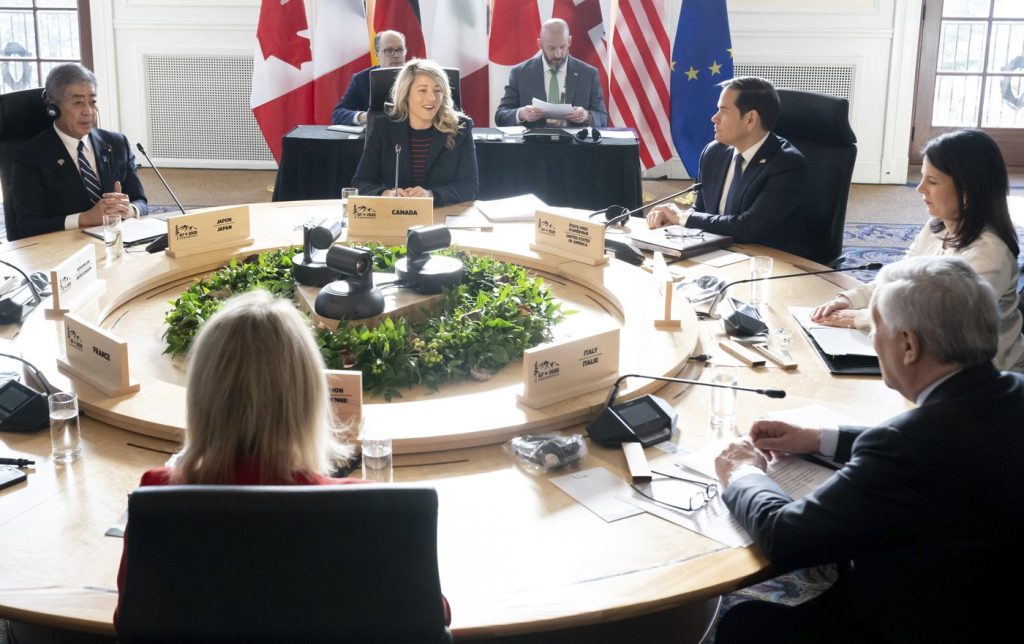TAIPEI, Taiwan (AP) Tensions escalated between China and the Group of 7 (G7) industrialized democracies after China vehemently rejected accusations concerning maritime safety in a recent joint statement issued by top G7 diplomats. The G7, consisting of influential countries, condemned China for its "illicit, provocative, coercive and dangerous actions" that threaten to alter the status quo in regions, specifically pointing to land reclamation efforts and military outposts.
The G7 statement emphasized the significance of maintaining peace and stability across the Taiwan Strait, which is a critical maritime route separating China from Taiwan, the self-governing island that China claims as its territory. The statement reaffirmed that the G7's basic policies on Taiwan remain unchanged, highlighting the importance of international security in this context.
In a strongly worded response released through its embassy in Canada, where the G7 meeting took place in La Malbaie, Quebec, China condemned the G7's remarks as "filled with arrogance, prejudice, and malicious intentions." The Chinese government criticized the statement as being repetitive and as grossly interfering in its internal affairs. It asserted that such comments misrepresented China's positions and interests.
China has historical claims over virtually the entire South China Sea, a crucial maritime pathway through which approximately $5 trillion in global trade flows. The Chinese government has consistently dismissed and engaged in confrontations with other countries, notably the Philippines, which is a treaty ally of the United States and also has competing claims in these contested waters.
Despite not being a G7 member, China closely monitors comments made by these industrialized nations regarding its international status and often reacts sharply to criticisms. The Chinese government has rejected a ruling by a U.N.-affiliated court which invalidated most of its expansive claims in the South China Sea. Furthermore, China maintains a hardline stance on its claim over Taiwan, stating that its sovereignty is non-negotiable, even if it necessitates the use of military force.
In recent actions, China has regularly deployed naval and aerial forces near Taiwan and has established military installations on artificial islands in the South China Sea. Notably, it conducted surprise live-fire military exercises in the Tasman Sea, located between Australia and New Zealand, without prior notice. Australia’s aviation authority reported that it only learned of these exercises half an hour before they commenced, through a pilot flying in the vicinity, forcing modifications to 49 commercial flight paths.
The G7 did not reference these military drills in their statement, but they did express growing concerns regarding recent attempts to impose unjustified restrictions on freedom of navigation and expand jurisdiction through coercive measures across various bodies of water, including the Taiwan Strait and the South China Sea.
With the world's largest navy, including three aircraft carriers and an additional one under construction, China continues to expand its military capabilities. It has established a military base in Djibouti and is consistently broadening the reach of its naval forces, signaling an aggressive military posture in global maritime settings.










